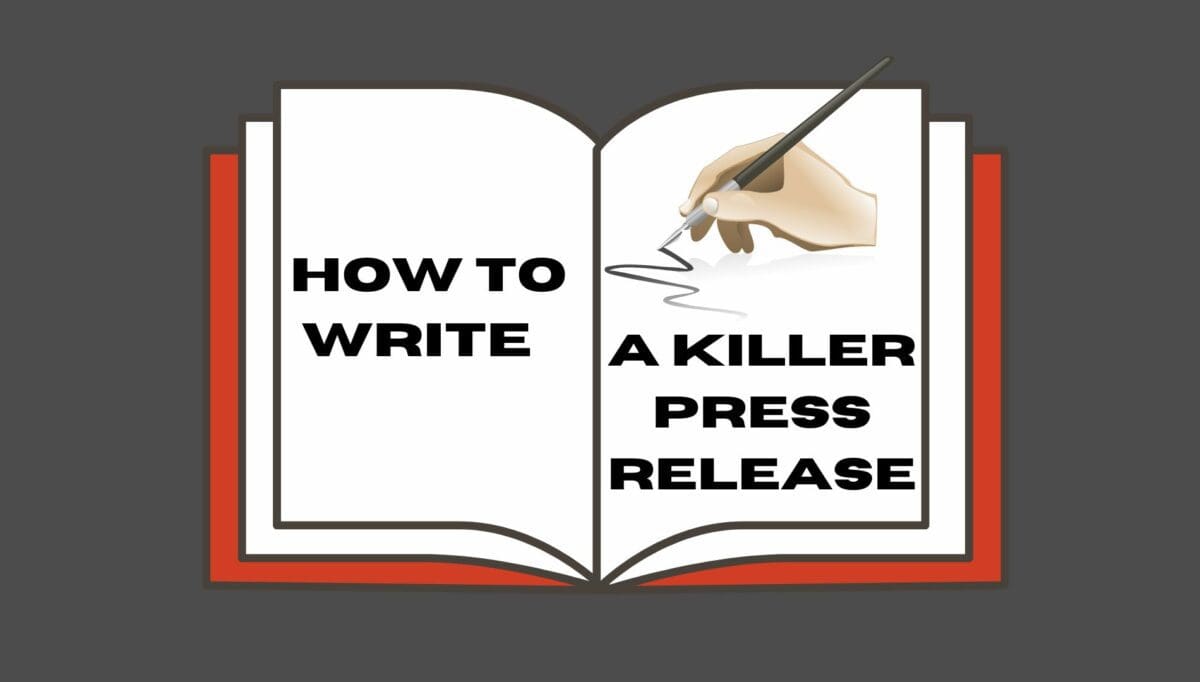
Having a raspy singing voice is nothing to worry about. A raspy voice can actually provide an unusual and soulful vocal element to many genres of music. Whether you’re looking for raspy singers for inspiration or want to smooth out rougher notes, here are our helpful tips for improving your vocal tone:
A raspy singing voice has a hoarse quality, meaning it can sound rough or husky. However, a hoarse voice can get dry and hurt your throat. You can get rid of a hoarse raspy voice through hydration, eating and drinking soothing remedies and resting your throat.
If a raspy voice isn’t what you are going for, there are ways to help smooth your singing voice. We’ve put together some of the best ways with this guide on raspy singing voices.
Are you releasing new music?
Book a meeting with a Music Gateway A&R today.
Discuss release strategies, distribution, growing your fanbase, organic playlisting, press, radio and more.
What is a raspy singing voice?
A raspy singing voice occurs when your vocal cords have unbalanced adduction. This means that they don’t come together consistently, preventing your voice from sounding clean. A raspy voice can be a great effect on your voice but can cause damage if used too much.
Whilst some singers have this effect naturally, it can also occur from a strained or overworked voice. As the vocal cords get tired, they fail to come together as effectively and consistently as they used to. This is why it is important to rest your voice and avoid long term damage.
A raspy singing can also be caused by singing too softly in the higher register. Your vocal cords tend to need more air and power to sing higher notes. If you don’t supply it, your voice will start to break up and become raspy.
How to get a raspy singing voice
A rough raspy singing voice can sound great with the right style of music. However, it can be damaging, especially if you plan on singing with a raspy voice for your whole career. If you’re especially forceful, your voice damage can actually turn into a serious health problem. Check out this video to find out more about singing with a raspy voice in a healthier way.
Raspy voice singers
Many famous and talented singers have soared to stardom by embracing their husky tone. So, if you love what you sound like, and don’t feel the need to smoothen anything out, celebrate the vocals you have like these musicians did.
Raspy female singers
- Rihanna
- Miley Cyrus
- Alicia Keys
- Christina Aguilera
- P!nk
- Amy Winehouse
- Stevie Nicks
- Macy Gray
- Jazmine Sullivan
- Bonnie Tyler
- Janis Joplin
- Joan Jett
Raspy male singers
- Rag’n’Bone Man
- Lewis Capaldi
- Rod Stewart
- Johnny Cash
- Tom Waits
- Otis Redding
- Bruce Springsteen
- Louis Armstrong
- Lou Reed
- Leonard Cohen
- James Brown
- Jon Bon Jovi
How to get rid of a hoarse voice when singing
Having a hoarse sound when singing is a common occurrence with vocalists. Some love the gravelly edge while others prefer to get rid of the raspy singing voice. Singers are all different when it comes to learning and performing music and that’s perfectly ok. There are many great ways to make your voice clearer and smoother.
First things first, it’s important to remember just how fragile our vocal cords can be. The sound you make when singing is caused by vibration from your vocal folds. There are two folds in your larynx (voice box) that are placed opposite each other. When you aren’t practising your favourite singing scale or acoustic cover, the folds stay open.
When you prepare to hit that awesome top note, that you’ve focused on all week, the folds quickly snap together. This is like when you brush your fingers across all six strings of the guitar, and the notes ring out as the strings wobble. Whilst this is all happening, your breath travels through causing the vibration.
With your vocal cords having to be busy bees, it’s important to look after your voice like you would any other instrument, and this can help alleviate those raspy notes here and there.
Although it isn’t always a preferred vocal sound, having a husky singing voice can also be a stylistic and creative way to sing. Over the recent years, the Open Mic UK competitions have seen an enormous surge in performances showcasing raspy singing voices.
Below is Lauren Jauregui from Fifth Harmony showing off her naturally raspy voice.
Now that you have a little more understanding on the process our vocal cords take just to make a sound let’s check out some of the best tips for keeping them in top shape.
#1 Stay hydrated
Hydrate correctly and humidify your vocal cords. It is essential to drink plenty of water throughout the day, every day so you stay hydrated. Also, we don’t feel as tired and maintain our health and ability to concentrate better. According to Choir Player, you should be drinking around 8 glasses of still water throughout the day to keep your vocal cords watered and that husky tone at bay.
Protecting your singing voice is another great way to combat the raspy tone, so it’s recommended that you avoid ice in your drinks, as it causes your cords to stiffen up.
While you’re keeping hydrated, another way to tackle the rasp of your vocals is to keep humidified. Dr Dan provides great information on using a vapour inhaler. He explains, “the vapour inhaler assists the voice to rest and heals after extensive vocal loads.” This means that the inhaler is a great way to soothe your voice after lots of practice.
Sometimes, a raspy voice isn’t a natural feature of your vocal sound. Instead, it can be down to rehearsing and performing your favourite songs over and over. We all love to make sure we’ve practised, but because your voice is fragile, it can become tired and worn out if we don’t find the right balance of resting and rehearsing.
The inhaler humidifies, which means adding more water to the air you’re breathing in, allowing your vocal cords to become moister, which is especially effective after lots of singing.
Read our article for more advice on protecting your vocal cords:
#2 Care for your voice with natural remedies
It’s not news that honey tastes delicious with a slice of toast, but did you know that it isn’t just a yummy spread? It could potentially be just the trick for getting rid of your raspy singing voice.
Sometimes, the cause of a hoarse vocal sound could be that your throat may be a little irritated or sore. Honey acts as a soothing coating for a sore throat, nurturing your vocal cords and removing that husky undertone.
So, how do we make sure we are using honey in the best way for the voice?
Top 10 Home Remedies recommends that you simply swallow one tablespoon of honey a few times a day. When you’re having your morning bowl of cereal, you can add a dollop of honey too. Easy and delicious.
Of course, honey isn’t the only herbal remedy out there.
You can also try drinking ginger or pepper tea. According to Voice Council, ginger tea keeps your vocal folds in top form and “the spiciness of the ginger” can help to lessen the phlegm that is produced.
This is hugely helpful in helping remove raspy vocals since a build-up of mucus can also be a factor that might need remedying. With a mug of ginger tea and a dash of honey, your sleek scale slide can take centre stage. Problem solved.
#3 Rest your vocal cords
Remove the rasp by enjoying some vocal rest. Along with enjoying your singing lessons, singing practice, singing along with your friends or performing for your Open Mic UK audition, we also constantly use our vocal cords to chit-chat with family, answer questions and so much more.
It’s no wonder we might develop that frustrating little rasp, trickling off the end of every note. Just like when we feel in need of a snooze as the clock strikes bedtime, our voice also grows weary and needs a well-deserved rest.
But how can this help us stop a hoarse voice?
In this Vocalist’s article, Yvonne DeBandi explains that we shouldn’t “talk for extended periods of time” and that whispering should also be avoided.
These actions are strenuous for our voice and will only add to a husky vocal. If you have something to tell your pal in science class, you might be better off saving it until your break.
Vocal expert, Dr Derek Isetti explains that a good way to rest your vocals is to think about limiting your daytime vocal use before any rehearsing or performing. In fact, he uses a great method to make sure you don’t forget to preserve your voice and help move away from the raspy singing.
Think of your voice as spending “vocal cash”. This means setting yourself a vocal cash budget for the day and really thinking about when to use your voice and when to let it settle. How much vocal cash do you think you could save?
Whilst we might have our feet up, relaxing our voice and enjoying the quiet, it could also be a good time to practise those all-important breathing exercises.
When we are using the right breathing techniques, we are also able to project and send forward our notes strongly. This ensures that the note doesn’t break. When you are experiencing a raspy singing voice, one of the typical features can be crackling notes. With breathing practice, you’re able to build your vocal stamina so it’s strong; this can help tackle the huskiness of your singing.
You can give your vocals an exciting workout by being seated or lying flat and placing your hand on your stomach and one on your ribs. Begin by pushing all the air that is being held in your lungs. Follow this with a slow breath in, counting to ten, and out.
While doing this repeatedly, you’ll begin to fill the gradual expansion of your rib cage. This just highlights how much room you can make for your lungs, so your breath has the best quality possible for singing.
There are many breathing routines you can try out, so give them a go and help smooth out your singing voice.
Now it’s time to get practising
With some new tips under your belt, you can get started on seeking out those bright and clear notes that you’ve worked so hard to achieve. However, it’s important to remember that if your throat is feeling really sore when singing, or just in general, you should always see a doctor.
Still have questions? Check out these quick and helpful answers
- My voice is hoarse, and I need to sing tonight
Every singer’s nightmare – your voice is hoarse and the gig is tonight. According to this Huffington Post article, a quick solution is a honey and lemon in chamomile tea (not too hot). And most importantly, keeping a positive and calm attitude, as the calmer you are, the calmer your voice box will be.
- What is the best rasping singing voice cure?
This is a question asked frequently among singers and while there isn’t one best way to cure a raspy singing voice, there are many that will suit each singer individually. It’s all about trying the tips mentioned above and seeing what works best for you. From herbal remedies to vocal rest and hydration, there are so many great ways to get rid of a husky vocal sound.
Do you have a raspy singing voice? Do you embrace it, or have you got any additional advice for your fellow husky toned vocalist? Let us know in the comments below.









